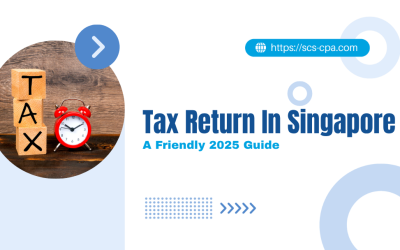UEN, meaning “Unique Entity Number”, is the official identifier for registered business entities and other organisations in Singapore. Similar to a personal identity number for citizens, the UEN is assigned by the government upon registration with the Accounting and Corporate Regulatory Authority (ACRA) to facilitate legal, administrative, and regulatory transactions.
UEN Format
Singapore’s Unique Entity Number system categorises entities based on their registration period and type.
- Businesses registered with ACRA before 2009 have a 9-digit UEN formatted as nnnnnnnnX.
- Local companies registered with ACRA before 2009 are identified by a 10-digit UEN, structured as yyyynnnnnX.
- All entities registered after 2009 are assigned a revised 10-digit UEN, denoted as TyyPQnnnnX.
Here’s what each component represents:
N = Represents a numeric digit.
P = An alphanumeric character.
Q = Also an alphanumeric digit.
PQ = Indicates the entity type, with ‘LL’, for example indicating, a Limited Liability Partnership.
Tyy/Syy/yyyy = Specifies the year of issuance, where ‘T’ signifies the 2000s, ‘S’ the 1900s, and ‘R’ the 1800s; thus, T06 refers to 2006, S95 to 1995, and R91 to 1891.
Securing a UEN: The Application Process
The UEN registration process for local entities includes the following:
- Choose an appropriate business structure (e.g., sole proprietorship, partnership, or company).
- Register through the BizFile+ website, operated by ACRA. During this process, businesses can opt for a standard UEN or a Special UEN (SUN).
- Once registered, the UEN is provided in the business profile, which can be accessed online.
Foreign entities, however, need to register with specific government bodies or agencies to obtain a UEN:
- Representative offices and non-profit organisations use Enterprise Singapore (ESG).
- Foreign military units go through the Ministry of Defence (Mindef).
- Foreign law practices register with the Ministry of Law (MLAW).
- Religious institutions like mosques and madrasahs receive their UENs from the Islamic Religious Council of Singapore.
Utilising Your UEN in Business Operations
A UEN is used to facilitate its everyday operations. Here’s how it is utilised:
- Used to identify the business in all tax-related filings and registrations, including GST submissions.
- Required in applications for import and export licences, allowing authorities to verify the business’s legitimacy and compliance status.
- Integrated with PayNow to facilitate immediate transfer of funds by using the UEN as a reference.
- Indicated on all formal business documents like invoices and contracts, providing a clear link to the business’s legal identity, which aids in legal and financial audits.
Conducting a UEN Search and Verifying the Status
To perform a UEN search, you can visit UEN.gov.sg and enter either the name of the entity or their UEN. The search results will display the business or company’s UEN number, the type of entity, the agency that issued the UEN, and the address, providing detailed information about the registered business.
Mandatory Display of UEN
In Singapore, it is legally required for businesses to display their Unique Entity Number on:
- Bills of exchange
- Business letterheads
- Invoices
- Receipts
- Official government communications and documents
- Order forms
- Public business signs
- Brochures and leaflets
- Published notices and advertisements
- Websites (for payment purposes)
- Emails sent by the entity
Updating Your UEN Details
Entities must update their UEN details on ACRA’s BizFile system whenever changes to their registered address or business activities occur. When adjustments to business activities are required, entities should file the relevant documents, which are generally processed within a two-week period.
Can You Change Your UEN?
A UEN is permanent and cannot be changed once issued. To acquire a new UEN, you need to register a new business or modify the structure of your current business.
Special Considerations and Exemptions for UEN
While most entities in Singapore require a UEN, there are notable exemptions and special cases, such as:
- Entities with only occasional or one-off interactions with government agencies.
- Offshore companies not engaging with local governments.
- Branches of existing Singapore companies.
For specific operational or legal reasons, entities may receive Special UENs. Moreover, branches and divisions of larger entities may utilise sub-entity codes for internal operations and identification, allowing them to function seamlessly under the larger entity’s framework.
Benefits of Having a UEN
Owning a Unique Entity Number in Singapore provides distinct advantages for streamlining business practices and adhering to local regulations. Here are the primary benefits:
- Ease of Access: A UEN provides businesses with streamlined access to government services, reducing complexity when dealing with multiple departments.
- Quick Compliance: It facilitates quicker compliance with regulatory requirements, acting as a definitive reference for all legal and financial dealings.
- Administrative Efficiency: The UEN enhances efficiency by consolidating business identity across different platforms and minimising paperwork.
- Business Credibility: Displaying a UEN on all official documents and communications enhances credibility and trust with partners and customers.
Start Your Business Right with Expert Guidance
Now that you know what a Unique Entity Number is and its role in Singapore’s business landscape, it’s time to register or incorporate your company. Singapore Corporate Services (SCS), a premier corporate service provider, is here to facilitate that process. Our business incorporation services include everything you need to streamline setup and assist in obtaining your UEN to ensure full compliance with local regulations.
Contact us today to leverage our expertise and establish your business with confidence.
NOTE: The information provided in this article was accurate as of the date of publication. However, regulations are subject to change. For the most up-to-date information, please contact us.
Corporate Income Tax Malaysia: Rates, Filing, and Strategic Compliance
Understand Malaysia’s corporate income tax system. Learn current tax rates, SME tiers, filing deadlines, LHDN requirements, penalties, and more.
Understanding the Core Types of Audits and Their Roles in Accounting in Singapore
Learn the key types of audits in Singapore to build trust and stay compliant. Examples are statutory, internal, GST, and forensic.
Tax Return In Singapore: A Friendly 2025 Guide
Want to be a responsible business owner? Read this guide to tax return in Singapore to help understand tax filing and play your part.





